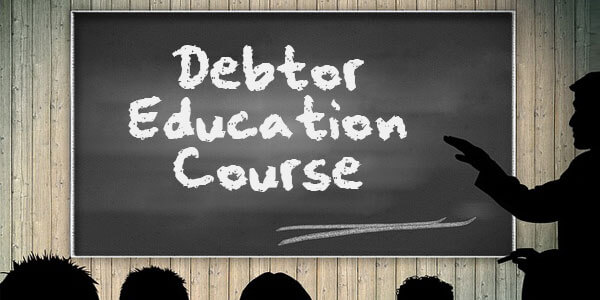The last step that you’re required to go through before you get a discharge in Chapter 7 or Chapter 13 bankruptcy, is appearing for a personal financial management or pre-discharge debtor education course. The aim of this course is to impart money management lessons and make you wise with your money after bankruptcy.
Unfortunately, the court won’t issue a discharge if you don’t complete this course. Read on this article to know more about how the debtor education course impacts your bankruptcy discharge.
Why is this debtor education course?
The goal of the pre-discharge debtor education course in bankruptcy is to educate you so that you could make smart financial decisions and would never seek the bankruptcy relief in future.
In the debtor education course, you’ll come to learn about:
- Preparing budgets
- Money management
- How to use credit wisely and effectively
- Consumer protection laws and agencies, and
- How to deal with unexpected financial crisis
Who must take the debtor education course?
With a few exceptions, all Chapter 7 and Chapter 13 bankruptcy filers must undergo the debt education course in order to get the most needed discharge. Usually, you must complete the debtor education course unless:
- You have a disability or inability that prohibits you from taking the course
- You are on active duty with the military in a combat zone, or
- You have access to little or no debtor education courses available in your district
Where do you find the list of approved debtor education course providers?
You must receive the education from a provider approved by the U.S. Trustee or the Bankruptcy Administrator if you reside in North Carolina or Alabama. Here, you can find a list of the approved pre-discharge debtor education providers in your area.
When do you need to complete the debtor education course?
If you are filing for Chapter 7 bankruptcy, you need to take the debtor education course and file the completion certificate with the court within 60 days after the first scheduled date of the 341 hearing or the meeting of creditors.
However, if you are filing for Chapter 13 bankruptcy, you must file the completion certificate before you make your last payment or file a motion to request a hardship discharge. (Know more about hardship discharge and alternatives to Chapter 13 payment plan)
What if you don’t take the debtor education course?
If you don’t take the mandatory debtor education course within the specified deadlines, the court will have no choice but to close your bankruptcy case without a discharge. Later, you would again have to file a motion, pay required fees, and request the court to reopen your case.
How much does the debtor education course cost?
The cost of the debtor education will solely depend on the provider you select. However, as per the new credit counseling and debtor education rules published by the Executive Office for United States Trustees (EOUST), a $50 or less is a reasonable fee. If a debtor education provider wants to charge more, it has to take approval from the EOUST.
However, if your household income is below 150% of the state determined poverty line, the law presumes that you can get a waiver of the debtor education course fee. However, your education provider can still charge you if it beats the presumption.
How do you file the certificate of completion?
Once you complete the course, you would need to file a form named Debtor’s Certification of Completion of Postpetition Instructional Course Concerning Personal Financial Management (Official Form 23) with the court. In most cases, you would also need to attach the course completion certificate with Form 23.
You can download the form from the website of the United States Courts. All you need to know about a debtor education course in bankruptcy.









